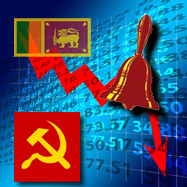Taking the Next Step
Research Fellow, Manohar Parrikar IDSA, Dr Smruti S. Pattanaik’s article ‘Taking the next step: Moving ahead with India-Bangladesh defense cooperation’ has been published in Dhaka Tribune on 09 September 2022.
As close neighbours and partners, defense cooperation in the context of larger security cooperation will only give a boost to the excellent bilateral relations that India and Bangladesh share, says Dr Pattanaik.
- Published: 9 September, 2022











